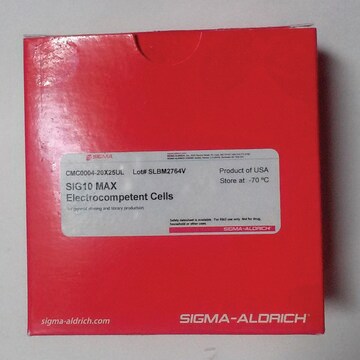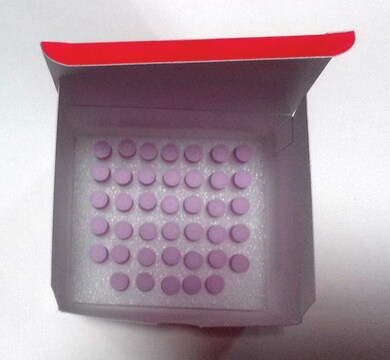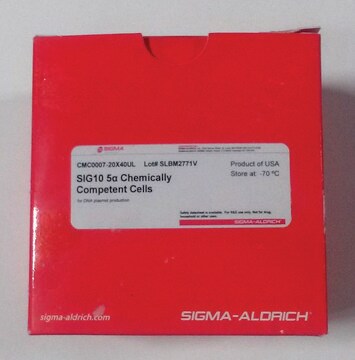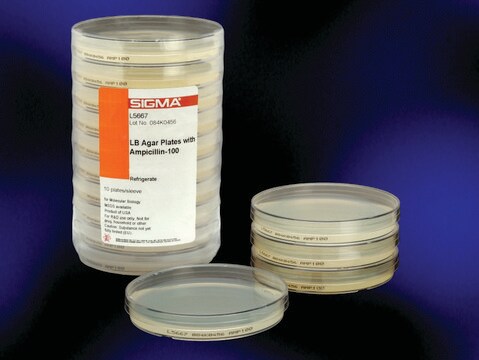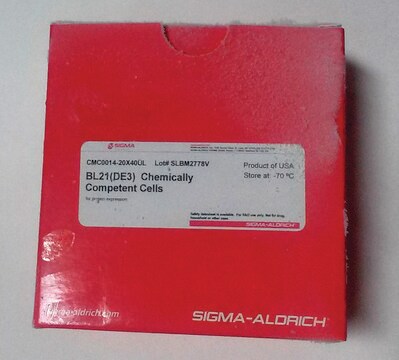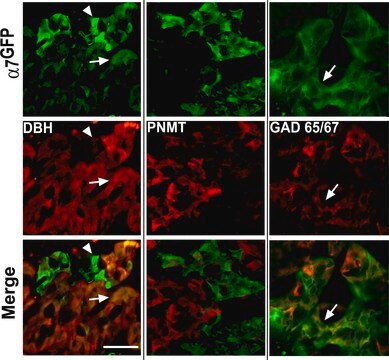CMC0009
STEADY Electrocompetent Cells
Escherichia coli, rod shaped
About This Item
Recommended Products
product name
STEADY Electrocompetent Cells, for plasmid production using unstable DNA
biological source
Escherichia coli
grade
for molecular biology
form
buffered aqueous solution
growth mode
adherent or suspension
morphology
rod shaped
technique(s)
microbiological culture: suitable
cell transformation
competent cell type: electrocompetent
transformation efficiency: ≥1 x 1010 cfu/μg
shipped in
dry ice
storage temp.
−70°C
General description
Clones with inverted repeats or other sequnces prone to recombination are commonly found in retroviral genes, and require cells such as this product to be propagated stably.
Genotype
recA13 supE44 ara-14 galK2 lacY1 proA2 rpsL20(StrR) xyl-5 λ– leu mtl-1 F– mcrB mrr hsdS20(rB–, mB–)
Features and Benefits
- Clone unstable sequences with reliable results
- Available as chemically competent or electrocompetent cells
- Your choice of two packaging formats
- High efficiency: over 1 × 108 cfu/μg (chem) or 1 × 1010 cfu/μg (electro)
- Excellent value
Components
- STEADY electrocompetent cells
- pUC 19 transformation control DNA
- recovery medium for cloning
related product
Storage Class Code
10 - Combustible liquids
Certificates of Analysis (COA)
Search for Certificates of Analysis (COA) by entering the products Lot/Batch Number. Lot and Batch Numbers can be found on a product’s label following the words ‘Lot’ or ‘Batch’.
Already Own This Product?
Find documentation for the products that you have recently purchased in the Document Library.
Articles
Bacterial transformation is a process of horizontal gene transfer by which some bacteria take up foreign genetic material (naked DNA) from the environment. Bacteria that can take up free, extracellular genetic material are known as competent cells.
Our team of scientists has experience in all areas of research including Life Science, Material Science, Chemical Synthesis, Chromatography, Analytical and many others.
Contact Technical Service